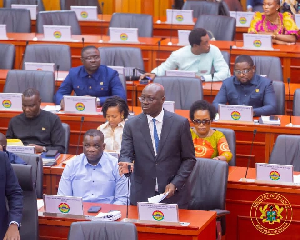Ghanaian Journalists have been encouraged to use the powerful tool of the media to bring into the spotlight issues of nutrition for public attention and discussion so as to increase awareness of the impact of under nutrition among the population as a way to help generate solutions for optimal nutrition for increased productivity and national development.
The called was made by the Mrs Wilhelmina Okawbi, Deputy Director in charge of nutrition, Ghana Health Services. Mrs Okwabi made the appeal during a day’s seminar on nutrition advocacy and reporting organized by the Ghana Health Service in collaboration with USAID for Journalists in the three regions of the north in Tamale.
Presenting the 2011 Ghana nutrition profiles results Mrs Okwabi, pointed out that the major nutrition challenges in the country are; stunting (too short for age), wasting (low weight for height), anaemia (iron deficiency) and iodine deficiency. She mentioned some of the dire consequences of under nutrition to include: low productivity in adults, growth and learning impairment in children, reproduction challenges in women and mortality in all populations.
Mrs Okwabi revealed that every in Ghana some 12,000 children die because their weight is too low for their age (underweight). According to her the survey has also shown that anaemia is very high in Ghana accounting for 20% of maternal mortality in the country.
In her view, Ghana stands to gain tremendously if the nation is able to increase nutrition security to the population particularly women and young children. The nutrition profiles results for 2011 reveals that if Ghana is able to reduce stunting alone economic gains accruing to the country could exceed 720 million cedis (US$504 million) by 2020.
The Northern Regional Director of Health Service Dr Akwesi Twumasi in his address to the participants said if Ghana does not place nutrition high on the national development agenda there is no way the country can achieve the Millennium Development Goals (MDGs); if at all we make some gains such gains are not sustainable and soon erode. Dr Twumasi charged journalist and health workers to be champions of nutrition to support change.
On the role of the media in promoting nutrition, Esi Amoaful, Deputy Chief Nutrition Officer, Ghana Health Service, said the media as a powerful education tool can be used to sensitize the public about the importance of good sanitation and proper nutrition. She disclosed that one of the biggest nutrition challenges facing Ghanaians is the poor handling of food. Mrs Amoaful urged the media to take on the issue of people preparing and selling food and fresh meat to the public under insanitary conditions stressing “no food is nutritious after it has been contaminated”. Equally the media can play a key role in helping to change poor eating habits such as the eating of solely grains, fatty, and sugary foods while encouraging variety and balance diets and consumption of local foods.
The one day seminar drew Journalists from the Northern, Upper East and Upper West Regions to deliberate on ways of making nutrition a priority on the development agenda. It was under the theme: Build the future. Invest in nutrition now.
Health News of Friday, 12 October 2012
Source: Mathias Aboba-Tamale












